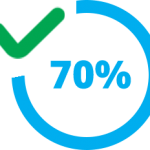
Withholding tax on charter revenues: has this battle been definitively won? As you may have heard MYBA and ECPY members have recently been subjected to French tax inspections in their capacity as Stakeholders. In compliance with Article 182B of the French General Tax Code, French Fiscal Authorities wanted to apply a 33% withholding tax on charter funds held by Stakeholders based in France, in relation to the commercialactivity (charters) made into the French territory and territorial waters. The withholding would apply when charter funds were transferred to Owning Companies or Yacht Owners which did not have a permanent professional establishment (business) in France and were based in jurisdiction which did not have a double tax treaty with France.
MYBA and ECPY decided to seek the official position of the tax authorities at the ‘Direction de la Législation Fiscale (DLF) in Paris. They asserted that Stakeholders are only intermediaries of on charter revenues realised in France and not the debtors.
The first reply was unfavourable but MYBA and ECPY lodged an appeal for a second interpretation by the National College. The DLF has now replied favourably, indicating that “the Stakeholder is not liable to pay the withholding tax provided for under Article 182 B of the General Tax Code”.
This is of course a great success but this is only the first stage, as now MYBA and ECPY need to ensure that this national decision is implemented at local level for the ongoing cases.
But when the battle is won at local levels are the tax authorities going to accept defeat or are they going to try to find a new debtor?
There’s still plenty of grey areas around this … stay tuned, we will release up-to-date news as soon as possible.
For any additional info or questions needed please email us to info@yachtwelfare.it.
We are always at your disposal.
